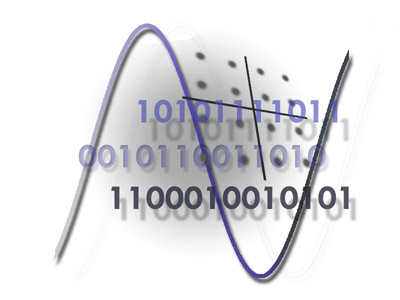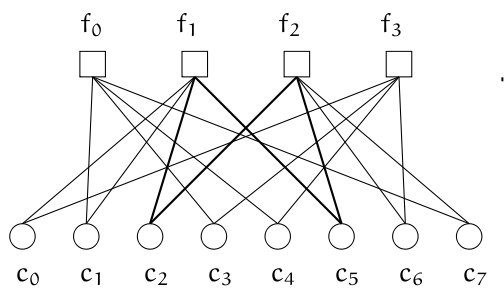Performances Evaluation of LDPC Codes. Analysis and simulations
With the employment of iterative decoding algorithms, the LDPC codes re-entered into current research and, due to the excellent performance vs. implementation complexity ratio, came up to be one of the hottest topics of modern coding theory. The analytical evaluation of the performances of these codes has not been completely accomplished yet, due to the behaviour of iterative decoders. The investigations upon the behaviour of these decoders tried to identify the reasons that generate the decoderís non-convergence towards code words, in order to increase their correction capability and to allow for a compact analytical description ob the post-decoding error-probability. The employment of stopping sets and of other notions derived from it in recent research, allowed for a complete characterization of the behaviour of the iterative decoders, in the particular case of the binary erasure channel.
The goal of this paper is to develop and implement stopping sets searching algorithms based on the codeís parity-check matrix and to evaluate the contribution of these sets upon the decoder performances on an Additive White Gaussian Noise (AWGN) channel. The project presents three methods for finding stopping sets using the parity-check matrix, developed and implemented by the author. Two of them are limited by the running-time required, which grows exponentially with the codeword length; therefore these methods co\an be used for small-length codes. The third method, based on random generation, does not allow deliver the exact number of stopping sets; still it can be used to analyze the proprieties of longer codes.

